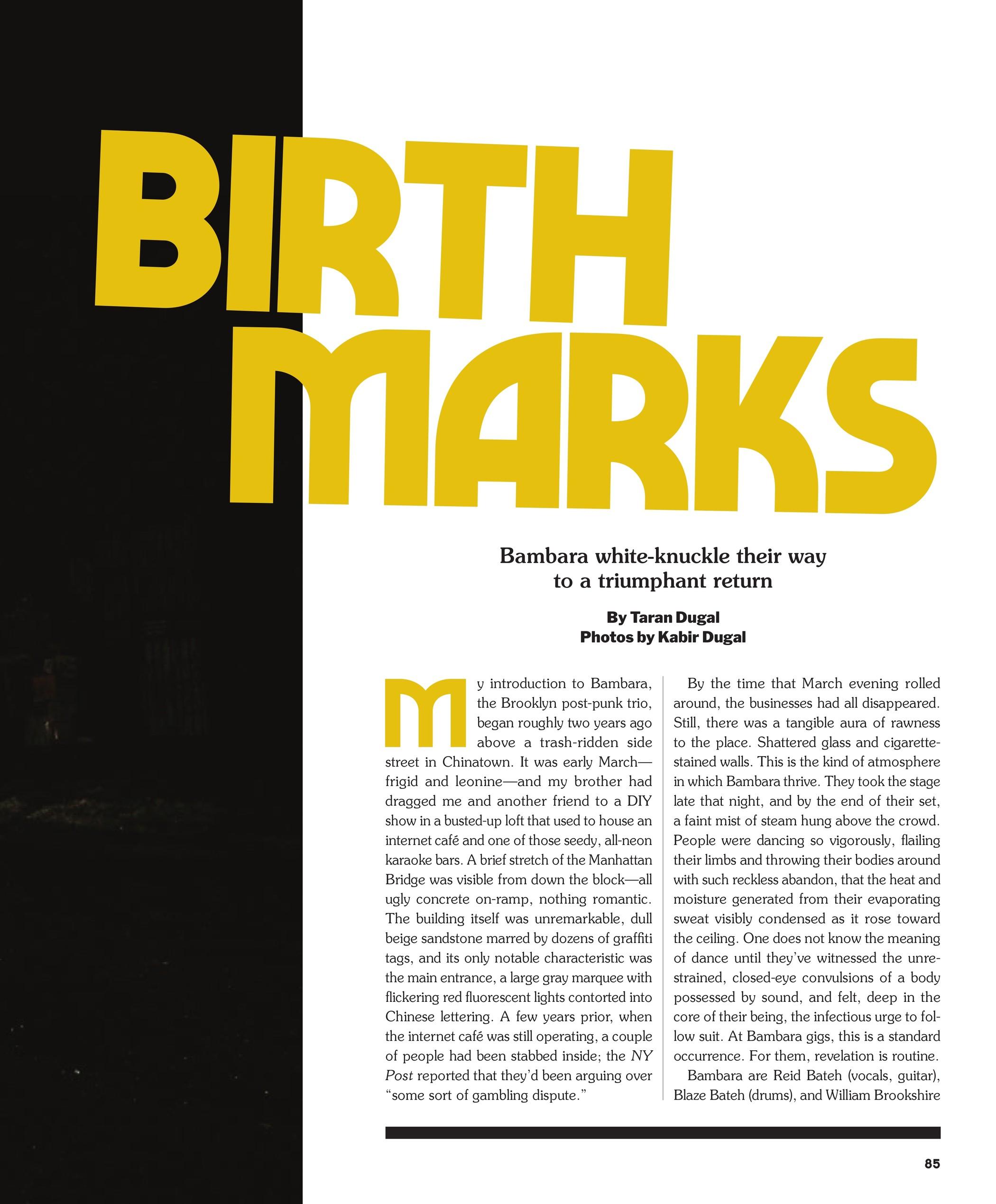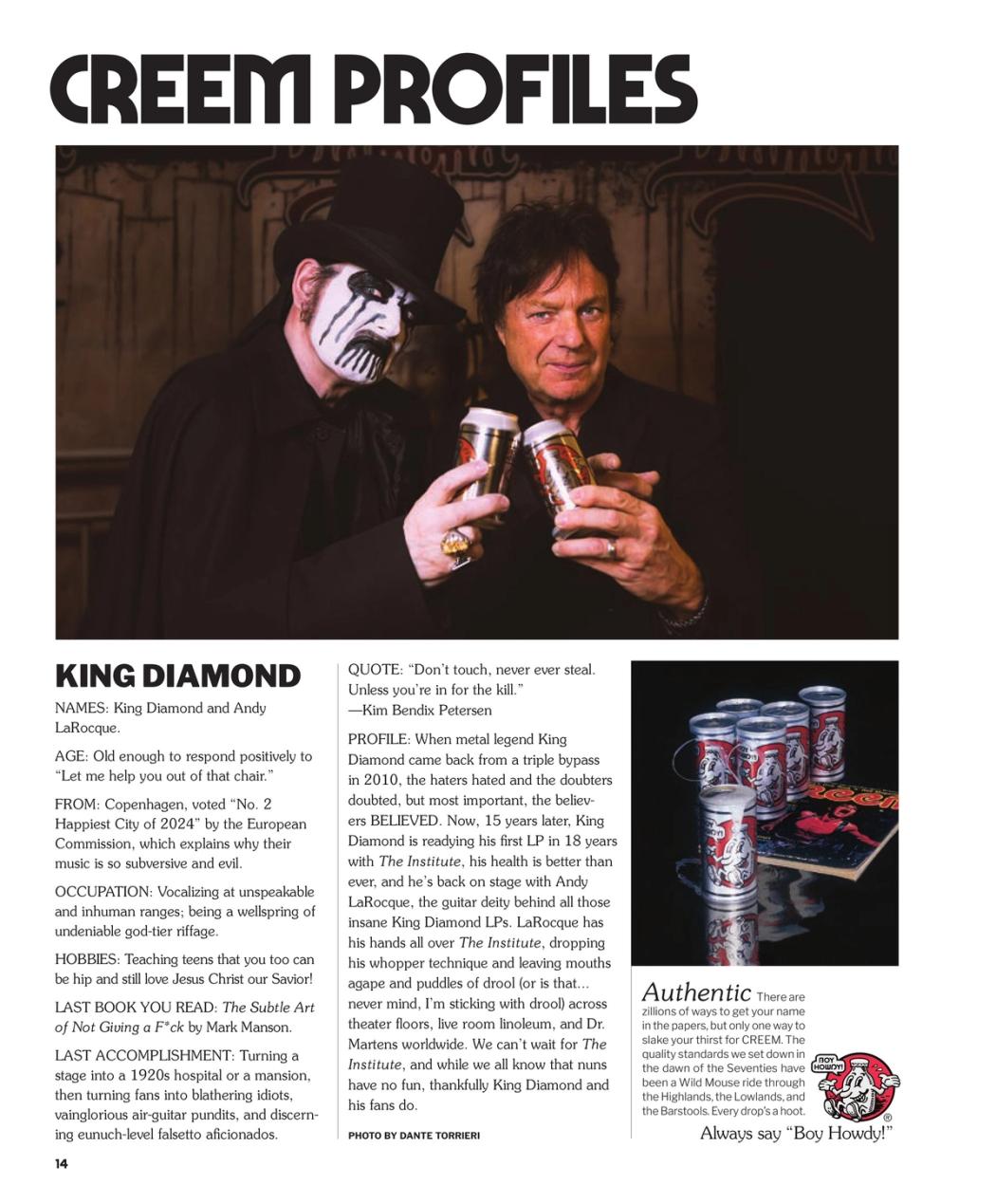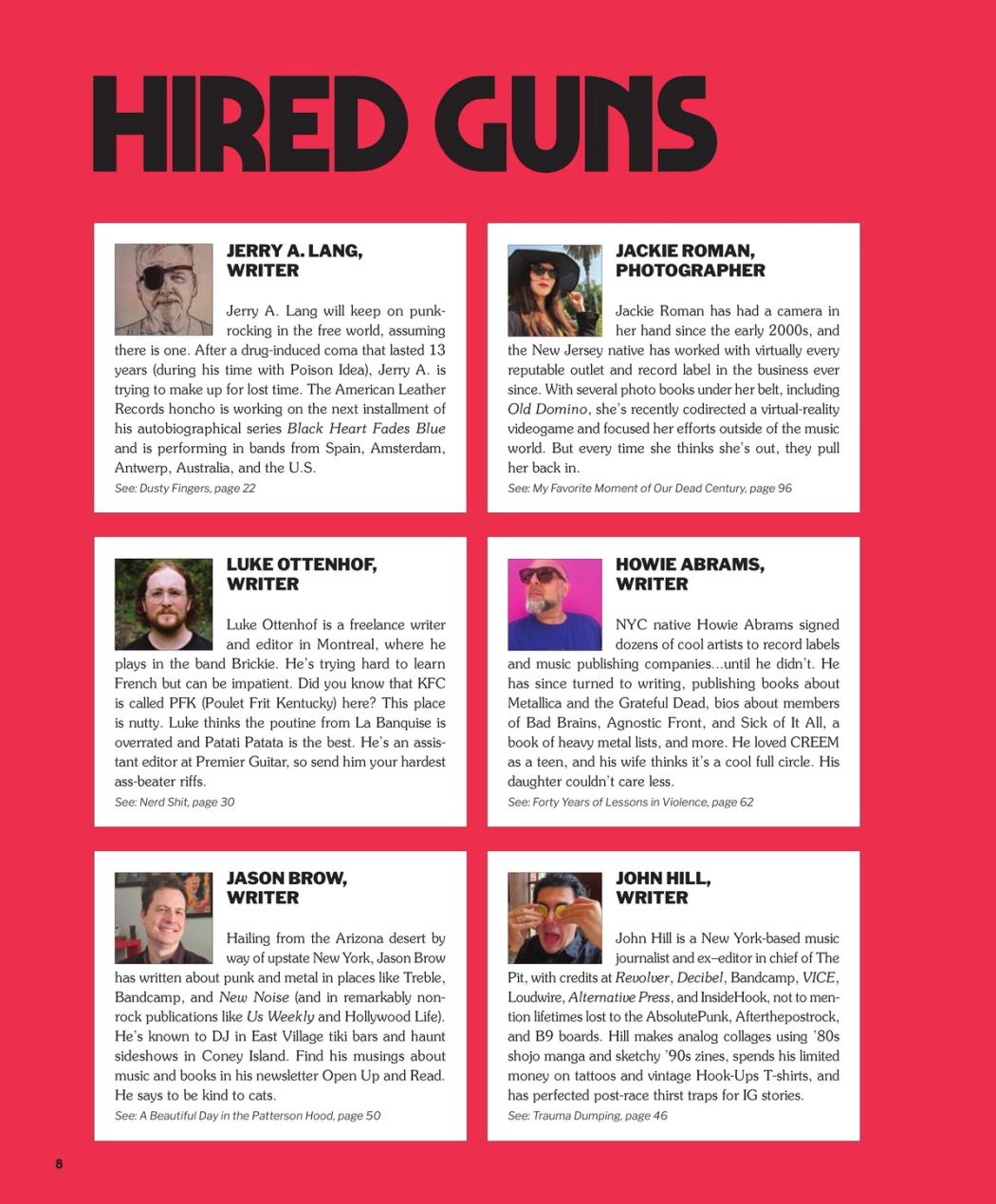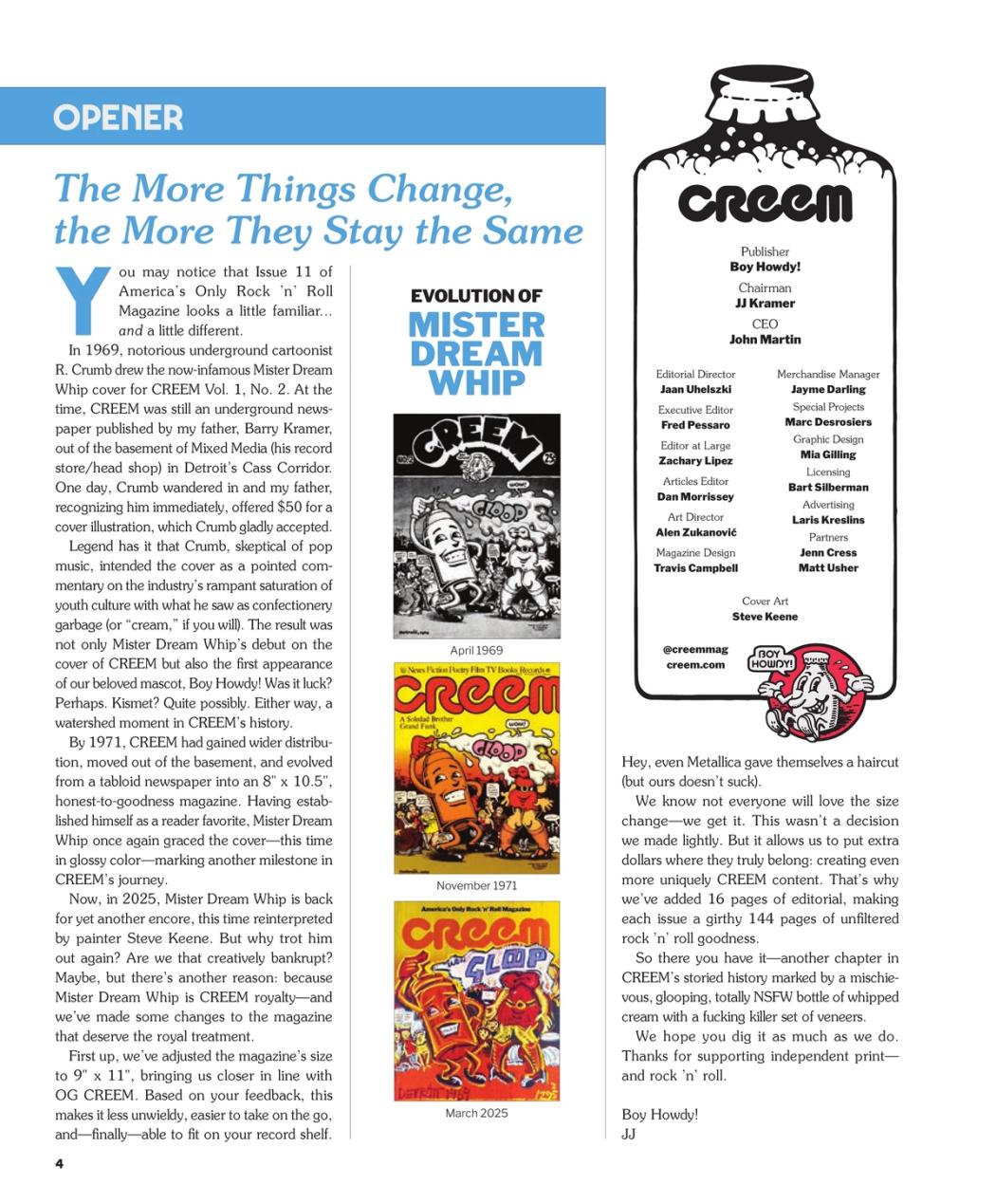LEAVING BIRTH MARKS
Bambara white-knuckle their way to a triumphant return


My introduction to Bambara, the Brooklyn post-punk trio, began roughly two years ago above a trash-ridden side street in Chinatown. It was early March— frigid and leonine—and my brother had dragged me and another friend to a DIY show in a busted-up loft that used to house an internet café and one of those seedy, all-neon karaoke bars. A brief stretch of the Manhattan Bridge was visible from down the block—all ugly concrete on-ramp, nothing romantic. The building itself was unremarkable, dull beige sandstone marred by dozens of graffiti tags, and its only notable characteristic was the main entrance, a large gray marquee with flickering red fluorescent lights contorted into Chinese lettering. A few years prior, when the internet café was still operating, a couple of people had been stabbed inside; the NY Post reported that they’d been arguing over “some sort of gambling dispute.”
By the time that March evening rolled around, the businesses had all disappeared. Still, there was a tangible aura of rawness to the place. Shattered glass and cigarettestained walls. This is the kind of atmosphere in which Bambara thrive. They took the stage late that night, and by the end of their set, a faint mist of steam hung above the crowd. People were dancing so vigorously, flailing their limbs and throwing their bodies around with such reckless abandon, that the heat and moisture generated from their evaporating sweat visibly condensed as it rose toward the ceiling. One does not know the meaning of dance until they’ve witnessed the unrestrained, closed-eye convulsions of a body possessed by sound, and felt, deep in the core of their being, the infectious urge to follow suit. At Bambara gigs, this is a standard occurrence. For them, revelation is routine.







